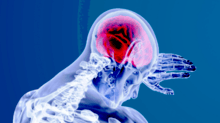
I have just read an article written by Professor Norbert Müller and published in the journal Frontiers in Psychiatry, titled ‘COX-2 Inhibitors, Aspirin, and Other Potential Anti-Inflammatory Treatments for Psychiatric Disorders’ [1].
In the article, research on the anti-inflammatory drugs, celecoxib (a COX-2 inhibitor) and aspirin is reviewed. These two medications have been shown in several studies to effectively reduce depressive symptoms in people with depression (when used in conjunction with pharmaceutical antidepressants). It is believed that these anti-inflammatory medications are helpful because depression is associated with chronic, low-grade inflammation. This chronic inflammation can have detrimental effects on hormone and neurotransmitter balance, can increase free radical activity, and over-time can damage parts of the brain associated with mood, memory, and thinking.
What is interesting in the article is that Professor Müller discusses the importance of continuing to conduct further studies on celecoxib and aspirin, plus other drugs known to have anti-inflammatory effects such as tocilizumab (an immunosuppressive drug that affects the activity of the inflammatory cytokine interleukin-6), minocycline (an antibiotic that can cross the blood-brain barrier), and statins (cholesterol-lowering drugs). What is concerning is that celecoxib is associated with an increased risk of cardiovascular events and aspirin can increase gastrointestinal bleeding.
Nowhere in the article is there any discussion about identifying and treating the cause(s) of inflammation in a person with depression and/or investigating the potential of natural anti-inflammatory agents.
We are now aware that eating an unhealthy diet, high stress, trauma, poor digestive health, poor sleep, excess body fat, and physical inactivity can all increase inflammation in the body. All these lifestyle, dietary, psychological, and physical risk factors are experienced at higher levels in people with depression and other psychiatric disorders. So rather than using a drug to lower inflammation it would seem logical to target these upstream causes. Treating these causes would be a far safer option and may also lead to improved physical health!
Furthermore, there are several natural anti-inflammatories that have the potential to improve mood and lower depressive symptoms. Two that I have studied include saffron and curcumin (from turmeric). These herbs/spices have been confirmed in several double-blind, placebo-controlled studies to reduce depression and anxiety in adults and teenagers [2-5]. Interestingly, they are not mentioned at all in this article. They present as far safer options and could probably be used long-term (unlike many of the drugs referred to in Professor Müller’s article).
While medications have a role in psychiatry, it important that efforts continue to be directed at investigating lifestyle, dietary, herbal, and nutraceutical options to enhance treatment outcomes in people with mental health problems. Unfortunately, a major barrier is finding money to support such studies!